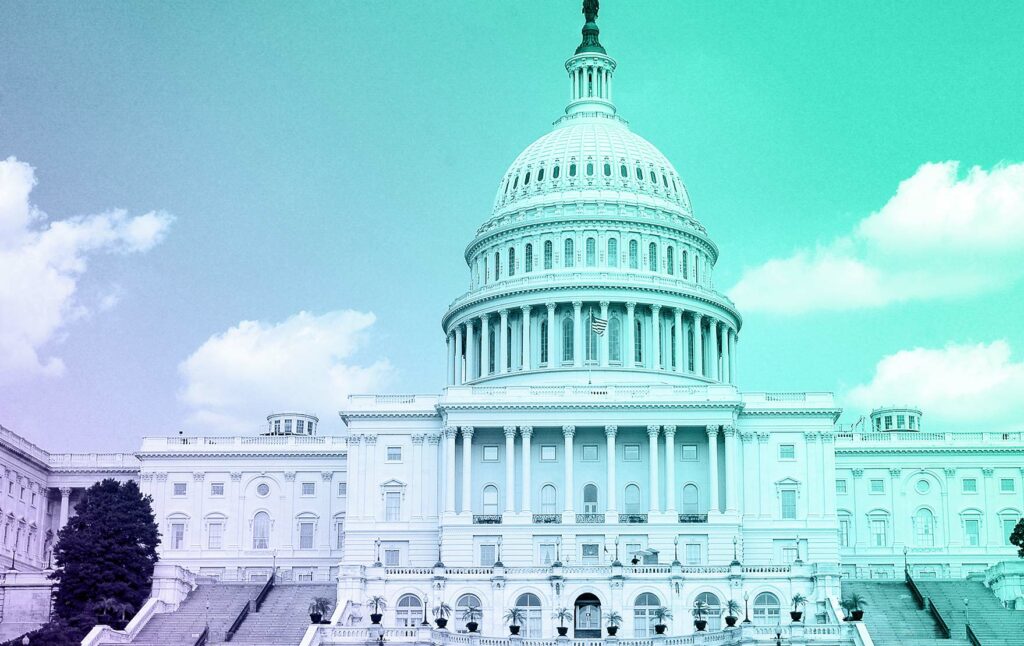By: Maxwell Reale
October 5, 2021 — While some pundits may view the previous weeks’ lack of resolution on President Biden’s two major legislative accomplishments—the Bipartisan Infrastructure Deal (BID) and the FY22 Reconciliation Bill (Recon 2)—as a signal for increased pessimism that either efforts will eventually pass, Capstone disagrees.
To quickly recap: President Biden and Congressional leadership formally linked the passage of the two bills and maintained urgency to reach an agreement on Recon 2 by pushing the technical deadline for a BID vote to October 30th; progressive Democrats accepted that a final Recon 2 package may only be $2.3T or less; and Senators Joe Manchin (D-WV) and Kyrsten Sinema (D-AZ) demonstrated an earnest interest in reaching a deal on Recon 2, dedicating significant personal time towards reaching an accord.
As such, we are revising upward our outlook for the passage of the BID this year from a 70% probability to 85%, and the outlook for passage of the Recon 2 package from 65% to 80%.
Almost as importantly, Speaker Nancy Pelosi (D-CA) proved she is still in full control of the House Democratic caucus despite threats and groans from the moderate and progressive wings of the House Democratic caucus.
To be clear, Speaker Pelosi could have passed BID last week. If that was her intent, she would have attached it to the government funding bill, forcing progressives to either vote for BID as part of a larger package or shutdown the government, the highway program, the national flood insurance program and the federal food program for needy families. It is hard to believe progressive Democrats would have stomached the mass fallout from blocking these programs’ funding for a significant amount of time, if at all.
Additionally, there are likely a number of Republicans who would have supported a standalone BID vote if held last week, which could have led to the bill’s passage even with significant Democratic dissent. Frankly, it would have been smart politics for House Republicans to vote for the BID in a standalone package with progressive Democrats dissenting. They would get credit for passing a popular, bipartisan bill, undermined progressive Democrats’ leverage in Recon 2 negotiations, and given moderate Democrats’ justification for not supporting Recon 2.
For Speaker Pelosi, who is deeply committed to passing both bills, the upside of the BID passing under these circumstances was not worth the risk it posed to the future likelihood of the Recon 2. Pelosi masterfully got everything she wanted last week, while covering her flank with moderates by laboring for a deal on Recon 2 that would have cleared the BID for passage with 218 Democratic votes.
Of course, there are a lot of details to be negotiated between now and the end of October to solve the Recon 2 puzzle. First, Democrats need to agree to a topline spending number. Sen. Manchin has drawn a line at $1.5T while President Biden and Congressional Leadership is pushing for a figure between $1.9T and $2.3T. As part of this topline negotiation, Democrats need to agree on how to divide that spending between three broad categories: families, healthcare, and climate.
Given the current version of the House Recon 2 package has a spending total above $3.5T, Democrats will likely need to sacrifice or significantly scale down several of their major policy goals. We expect to hear chatter from Democratic leadership on a potential FY23 reconciliation bill in 2022 as a possible vehicle to soften the blow for supporters of major policy goals left out of the Recon 2 package.
Once the Recon 2 framework is agreed to, all Democrats have to do is write the legislation, pass it out of the House, clear any issues raised by the Senate parliamentarian, amend the legislation in the Senate so members can notch some high-profile policy wins, score the legislation, pass it out of the House, and finally pass it out of the House a second time (likely rolled into a House vote on the BID). A tall task, but achievable given the pressure Democratic leadership and the White House is applying to these negotiations.
Add in the pressure from the impending highway program expiration on October 31st—assuming the Senate passes the House’s highway program continuing resolution—and we believe there is a reason for optimism for the passage of both the BID and Recon 2 by early November.
Contact [email protected] to receive insights like this via email.
Regulatory Changes to Foster US Drone Supply Chains
Capstone believes that US-made parts for unmanned aircraft systems (UAS), or drones, will see increased demand as new US regulations prohibit drones and UAS components produced in foreign countries. Separately, we believe that the counter-drone (C-UAS) market will...



























